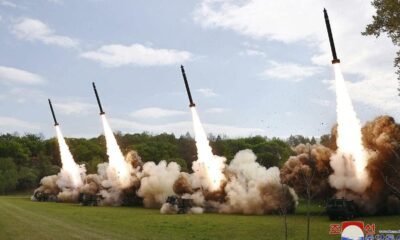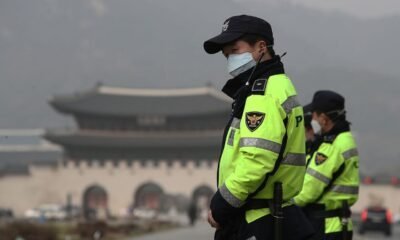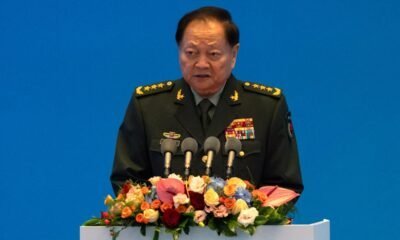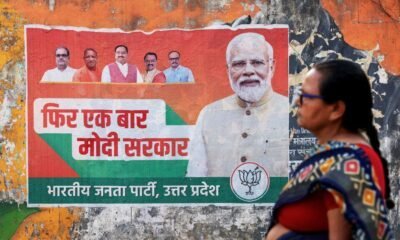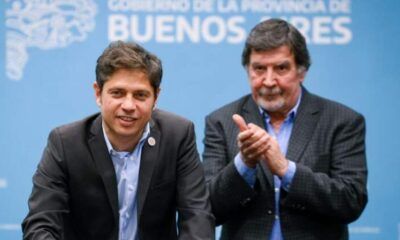INTERNACIONAL
How South Africa’s former leader Zuma turned on his allies and became a surprise election foe

JOHANNESBURG (AP) — South Africa faces an unusual national election this year, its seventh vote since transitioning from white minority rule to a democracy 30 years ago. Polls and analysts warn that for the first time, the ruling African National Congress party that has comfortably held power since Nelson Mandela became the country’s first Black president in 1994 might receive less than 50% of votes.
One big reason is Jacob Zuma, the former president and ANC leader who stepped down in disgrace in 2018 amid a swirl of corruption allegations but has emerged in recent months with a new political party. It intends to be a major election player as the former president seeks revenge against former longtime allies.
A SOUTH AFRICAN COURT OVERTURNS BAN, RULES THAT FORMER LEADER JACOB ZUMA CAN RUN IN THE ELECTION
Here is what you need to know about the 82-year-old Zuma’s return to the political ring and how it might play a significant election role.
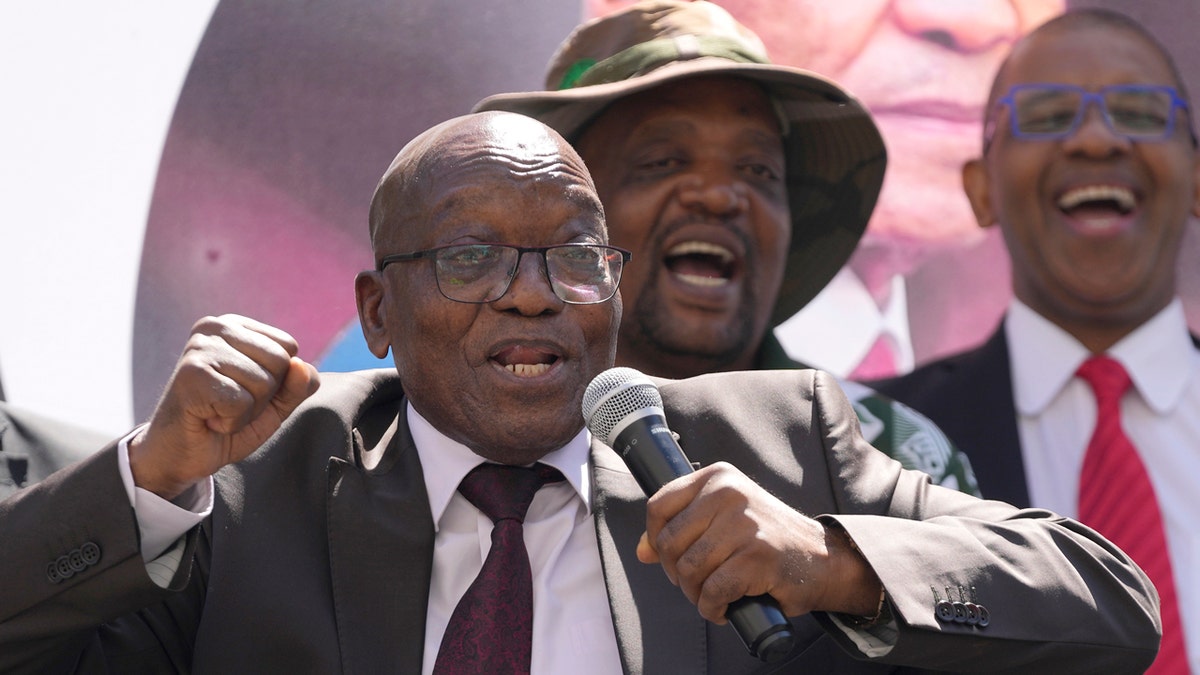
Former South African president, Jacob Zuma, sings and dances after addressing his supporters of the UMkhonto WeSizwe, (MK) party outside the High court in Johannesburg, South Africa, Thursday, April 11, 2024. For the first time since 1994, the ruling African National Congress (ANC) might receive less than 50% of votes after Zuma stepped down in disgrace in 2018 amid a swirl of corruption allegations and has given his support to the newly-formed MK. (AP Photo/Themba Hadebe)
WHO IS JACOB ZUMA?
Zuma has long been one of South Africa’s most recognizable politicians. He was a senior leader in the ANC during the liberation struggle against apartheid. A former ANC intelligence chief, he has repeatedly threatened to reveal some of the party’s secrets. While Zuma was not one of Mandela’s preferred choices to succeed him, Mandela trusted Zuma to play an influential role in ending deadly political violence that engulfed KwaZulu-Natal province before the historic 1994 elections. The province has remained a vocal base of support for Zuma ever since, and members of Zuma’s Zulu ethnic group make up its majority. Zuma became deputy leader of the ANC in 1997 and was appointed South Africa’s deputy president in 1999.
HOW DID HE BECOME PRESIDENT?
Zuma’s path to power included legal challenges. In 2006, he was found not guilty of raping the daughter of a comrade at Zuma’s home in Johannesburg. A year earlier, he was fired as South Africa’s deputy president after his financial advisor was convicted for corruption for soliciting bribes for Zuma during an infamous arms deal. Alleging a political witch hunt, Zuma launched an aggressive political campaign that saw him elected ANC president in 2007. His campaign appealed to widespread discontent with then-President Thabo Mbeki, who was often described as autocratic and aloof. The corruption charges against Zuma were later dropped, amid controversy, and he was elected South Africa’s president in 2009.
HOW DID HE LOSE POWER?
Zuma’s presidency was often under fire. His close friends and allies, the Gupta family, were accused of influencing appointments to key cabinet positions in exchange for lucrative business deals. The allegations of corruption in government and state-owned companies eventually led the ANC force Zuma to resign in 2018. A judicial commission of inquiry uncovered wide-ranging evidence, and Zuma in 2021 was convicted and sentenced to 15 months in jail for refusing to testify. Zuma remains aggrieved with the ANC and his successor, President Cyril Ramaphosa. But few South Africans expected the break to go so far.
HOW HAS HE REEMERGED?
Zuma shocked the country in December by denouncing the ANC and campaigning against a party that had been at the heart of his political career. His new political party, UMkhonto WeSizwe, was named after the ANC’s military wing, which was disbanded at the end of the struggle against white minority rule. The ANC has launched a legal case seeking to stop the new party from using a name and logo that are similar to those of the military wing. The charismatic Zuma continues to crisscross the country, delivering lively speeches, and an image of his face will represent the party on ballots.
CLICK HERE TO GET THE FOX NEWS APP
WHAT ARE ZUMA’S ELECTION CHANCES?
The ANC already had been facing pressure from other opposition parties. But Zuma’s new party threatens to draw support from within the often divided ANC. South Africa’s electoral body has cleared him to run for a parliament seat, despite his past conviction. Polls suggest the new party may emerge as one of the country’s biggest opposition parties and could play a significant role if the weakening ANC must form coalitions to run the country. Addressing his supporters at a recent rally, Zuma declared that «I need to return so that I can fix things.»
INTERNACIONAL
Pope Francis had peaceful night’s rest at hospital following respiratory crisis, Vatican says
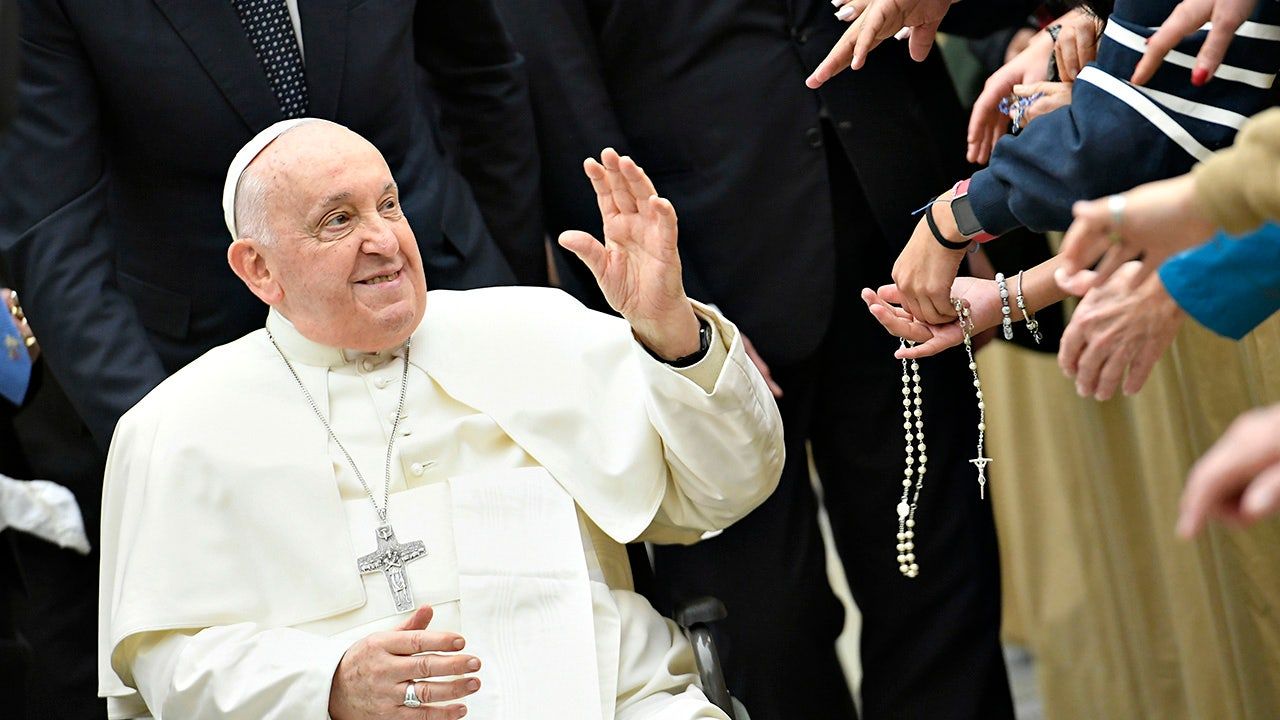
Pope Francis, 88, rested during a peaceful ninth night at Rome’s Gemelli Hospital after a respiratory crisis and blood transfusions, the Vatican said Sunday.
The update came after doctors said Francis, who had part of one lung removed when he was younger, was in critical condition.
It is unclear if he was awake and eating breakfast.
Pope Francis greets faithful during the weekly General Audience at the Paul VI Hall on January 10, 2024 in Vatican City, Vatican. (Vatican Media via Vatican Pool/Getty Images)
The pope suffered a prolonged asthmatic respiratory crisis on Saturday while being treated for double pneumonia and a complex lung infection.
He received «high flows» of oxygen to help him breathe, and he received blood transfusions after tests revealed low counts of platelets, which are needed for clotting, according to the Vatican.
Francis «continues to be alert and spent the day in an armchair although in more pain than yesterday,» the Vatican said.
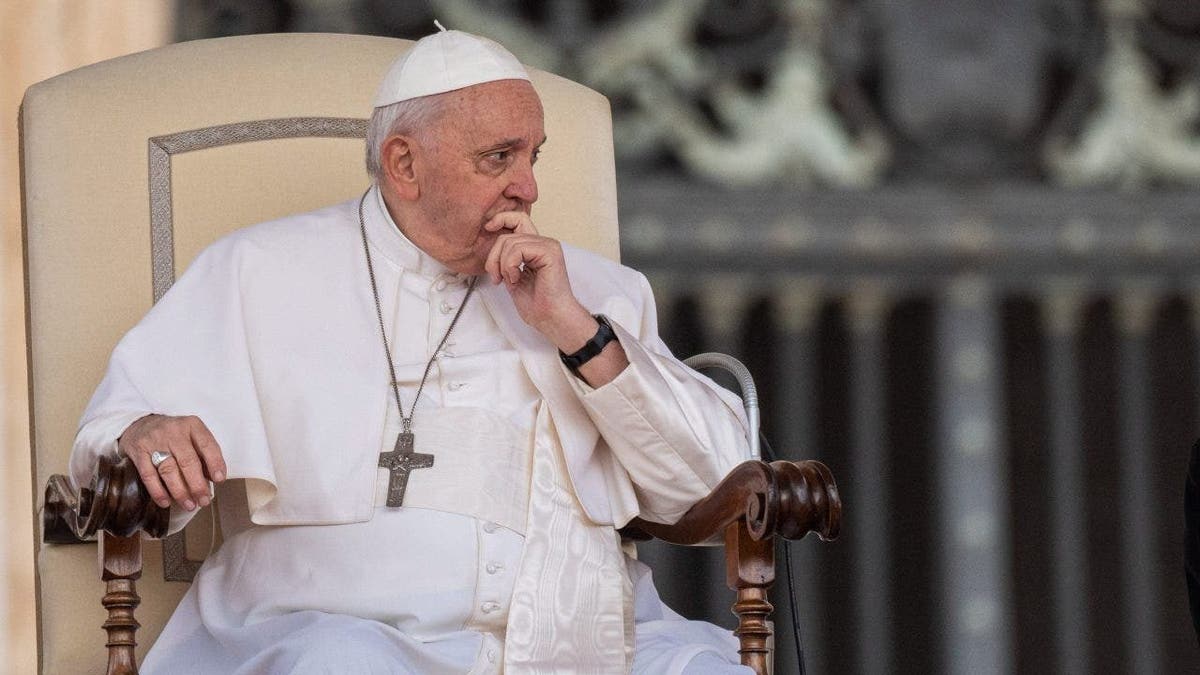
Pope Francis leads his traditional Wednesday General Audience at St. Peter’s Square in Vatican City, March 8, 2023. (Stefano Costantino/SOPA Images/LightRocket via Getty Images)
Doctors said Francis’ prognosis was «reserved.» Doctors have said his condition is touch-and-go, given his older age, fragility and pre-existing lung disease.
The main threat is if the infection enters the bloodstream, a serious condition known as sepsis, the doctors said.
The Associated Press contributed to this report.
-
POLITICA2 días ago
Luego de la reunión con Milei, la titular del FMI elogió el programa económico del Gobierno
-
POLITICA2 días ago
Javier Milei se reunió con Elon Musk y le regaló una motosierra
-
POLITICA2 días ago
Los 4.000 millones de Axel Kicillof que dejaron al descubierto las trampas de las licitaciones
-
ECONOMIA3 días ago
¿Qué dice el decreto firmado por Javier Milei que transformó al Banco Nación en una Sociedad Anónima?
-
POLITICA3 días ago
Israel confirmó que la Yihad Islámica asesinó a Oded Lifshitz, uno de los rehenes devueltos hoy, mientras estaba en cautiverio
-
CHIMENTOS14 horas ago
Se filtró una foto de Susana Giménez en el sanatorio donde fue internada de urgencia su hija: “Está muy preocupada”

